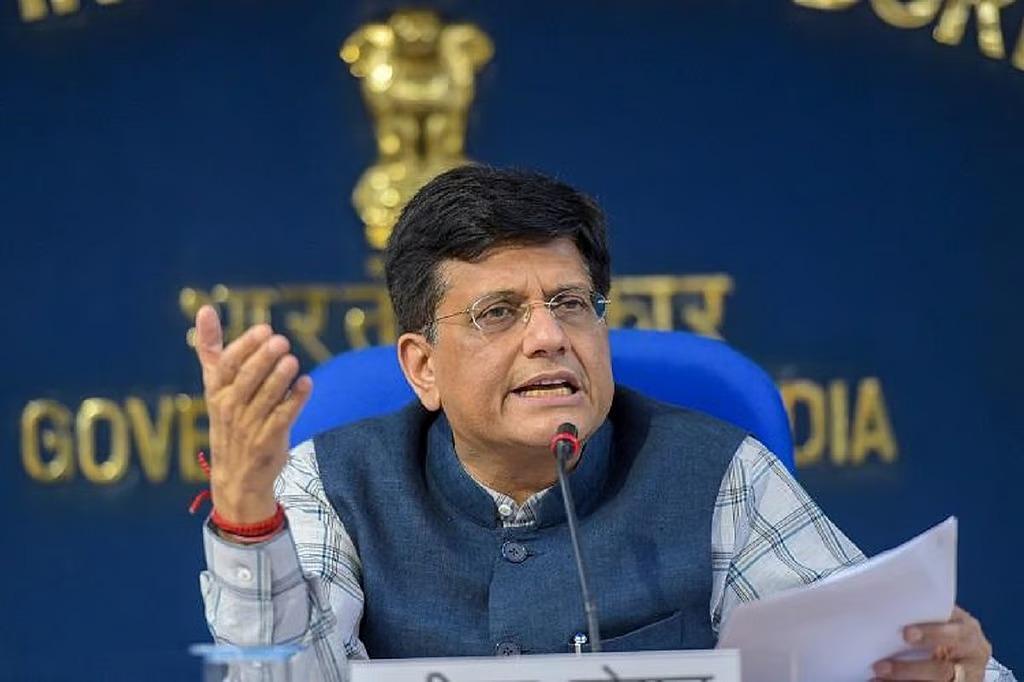
India will Retaliate if EU Imposes Carbon Tax: Piyush Goyal
In a recent statement, Union Minister Piyush Goyal expressed India’s stance on the European Union’s (EU) proposed carbon border adjustment mechanism (CBAM), stating that the country will take retaliatory action if the EU imposes a carbon tax on imports of certain goods to the Union. This move comes as the EU seeks to impose tariffs on imports of high-carbon goods, including steel, cement, and aluminium.
Goyal’s statement is a clear indication that India will not take the EU’s proposed carbon tax lightly. Speaking to media, Goyal emphasized that it would be “silly to put tax on friendly countries like India”. This sentiment is echoed by many in the Indian business community, who believe that the EU’s CBAM is an attempt to penalize countries that do not conform to the EU’s climate change policies.
So, what is the EU’s proposed carbon border adjustment mechanism (CBAM), and why is India so opposed to it? Let’s dive deeper into the issue.
What is the EU’s Carbon Border Adjustment Mechanism (CBAM)?
The EU’s CBAM is a proposed mechanism aimed at reducing greenhouse gas emissions by imposing tariffs on imports of high-carbon goods from countries that do not have similar climate change policies in place. The mechanism is designed to level the playing field for EU industries, which are subject to stricter environmental regulations. Under the CBAM, imports of high-carbon goods, including steel, cement, and aluminium, will be subject to a carbon tariff, which will be calculated based on the carbon intensity of the goods.
Why is India Opposed to the EU’s CBAM?
India is opposed to the EU’s CBAM for several reasons. Firstly, India believes that the mechanism is an attempt to penalize developing countries that have not yet achieved the same level of economic development as the EU. India’s economy is still growing rapidly, and the country is not yet ready to implement strict climate change policies like the EU.
Secondly, India is concerned that the CBAM will harm its industries, particularly in the steel and cement sectors. India’s steel industry, for instance, is a major employer and contributor to the country’s GDP. If the EU imposes a carbon tax on Indian steel exports, it could lead to job losses and a decline in economic growth.
Finally, India believes that the CBAM is not a sustainable solution to climate change. Instead of penalizing countries that do not have similar climate change policies, India believes that the EU should focus on reducing its own carbon emissions. India has been a strong advocate for climate justice, arguing that developed countries should take the lead in reducing their carbon emissions.
What will India Do if the EU Imposes a Carbon Tax?
If the EU imposes a carbon tax on Indian exports, India has threatened to take retaliatory action. Goyal’s statement is clear: “If they put a tax on friendly countries like India, we will retaliate.” India has a range of options available to retaliate, including imposing tariffs on EU goods, reducing imports from the EU, and taking legal action against the EU.
In addition, India could also seek to negotiate with the EU to find a more equitable solution. India has been a strong advocate for climate justice, and the country believes that any solution to climate change must be based on equity and mutual cooperation.
Conclusion
The proposed carbon border adjustment mechanism (CBAM) is a complex issue that has the potential to impact the global economy. India is opposed to the mechanism, believing that it is an attempt to penalize developing countries that do not have similar climate change policies in place. If the EU imposes a carbon tax on Indian exports, India has threatened to take retaliatory action. The issue highlights the need for international cooperation and a more equitable approach to climate change.






